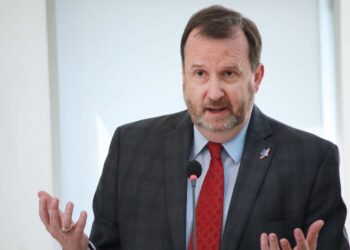Cameroon President Paul Biya, the world’s oldest leader, marks his 92nd birthday on Thursday, after more than 40 years in power. Amid speculation about his future, he has not yet announced whether he will run in this year’s elections.
Political Longevity and Election Speculation
A majority, inclusive of the divided opposition, expect Biya to contest an eighth term in the October poll. First taking power in 1982, his government has been characterized by increasing authoritarian grip, especially following the contentious 2018 election, which was followed by escalating clampdown on the opposition voices, say human rights campaigners.
Government spokesperson and Communications Minister Rene Emmanuel Sadi said last month that Biya would make his declaration to stand “at the right moment.” Biya has not said who his successor would be, and the topic is still politically sensitive.
Health Issues and Public Appearance
Concerns about Biya’s health intensified last year when he went missing from public view for weeks. Speculation about his whereabouts was met with a government statement that he was in Switzerland, a favorite retreat. The government later banned local media from commenting on his health status.
There have been few public appearances by Biya since his return on October 21, limited to official photographs, a regional summit in Yaoundé, and televised speeches.
Calls for Continuation and Support
As in past electoral cycles, segments of society have called for Biya to stay on. In his year-end speech, he reiterated his readiness to serve the country, referencing “massive support.” Traditional leaders in January promised “total and unconditional” support, and some social media activists asserted Biya is still “strong” and can serve two more terms.
Repression and National Challenges
Biya’s administration and he himself have continuously been accused of muzzling voices of dissent. His re-election in 2018, which secured his seventh term, was trailed by political crackdowns, and not many people criticize his regime openly.
The Catholic Bishops’ Conference recently condemned deteriorating economic and social circumstances, referring to general “cries of distress” over corruption, unemployment, and bloodshed ravaging the nation.
Cameroon has been battling insurgencies for years. Boko Haram and Islamic State West Africa Province (ISWAP) have attacked its far north since 2009, and separatist conflicts have been fought in the English-speaking western regions since 2016.
Uncertain Future Amid Governance Vacuums
Biya praised the “tremendous progress” of recent years in his latest speech and referred to the upcoming polls, urging young people to resist “the sirens of chaos.”
In spite of this, governance paralysis continues. The government has not changed since January 2019, with vacancies in the ministries left unfilled following the deaths of four ministers. Likewise, over a dozen parliamentary and senatorial seats are still vacant following the deaths of lawmakers.
With Cameroon on the verge of another election cycle, the issue of Biya’s political future hangs in the balance, with many expecting him to maintain his stranglehold on power.
Paul Biya Turns 92 After More Than 40 Years as Cameroon President
ADVERTISEMENT
ADVERTISEMENT









